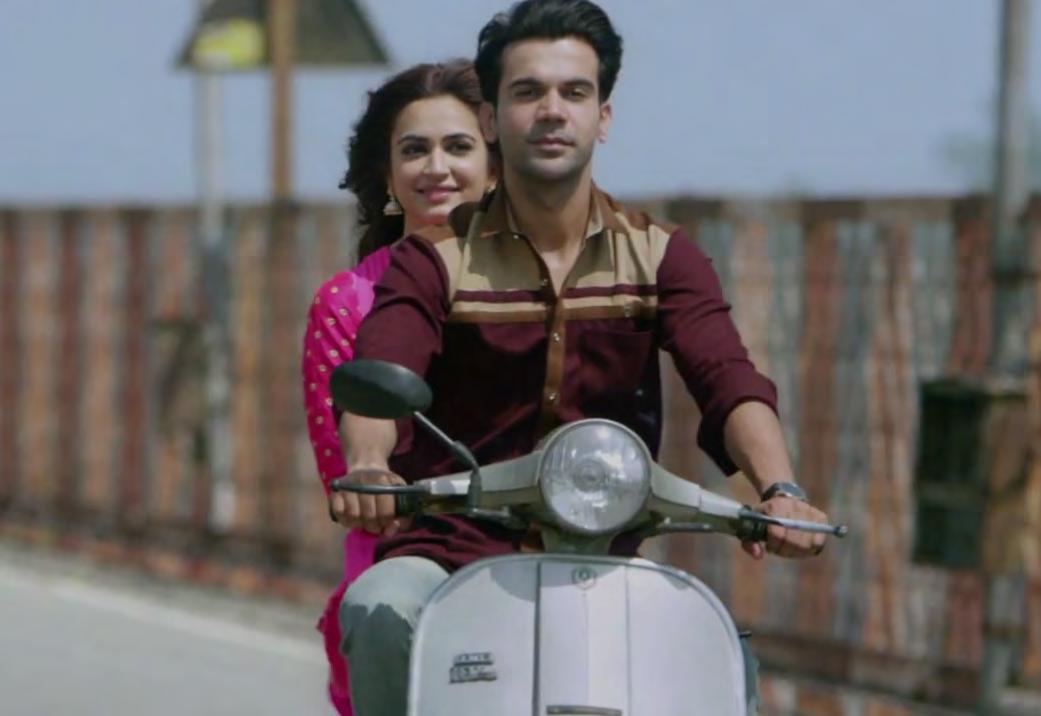
2 minute read
CRUELTIES OF SMALLTOWN ALLIANCES
from 2017-11 Sydney (2)
by Indian Link
Shaadi Mein Zaroor Aana
STARRING: Rajkummar Rao, Kriti Kharbanda
DIRECTOR: Ratnaa Sinha
HHHHH
Kanpur joins the growing league of north Indian towns that have lately been used to locate and pin down charming smalltown romances about men and women with large families and loud voices who eat, belch, fart and insult one another without the fear of being judged.
Before you holler about cultural and regional stereotyping, let’s quickly move on to meet Satyendra, alias Sattu, and Aarti. They are the aspirational 20-something small-towners with stars in their eyes. He thinks she looks like actress Juhi Chawla. She thinks he is her superstar Shah Rukh Khan.
The thing about Rajkummar Rao and Kriti Kharbanda is that that they can play their aspirational characters with endearing assuredness. For Rajkummar, this is child’s play. But Kriti comes into her own imbuing her small-town character with a sense of mounting exuberance and plummeting disappointments.
Debutant director Ratnaa Sinha often loses the plot in the flurry to catch the sweaty revelry of the Indian middle class as it cruises from its tradition-bound attitude towards social issues such as arranged marriage and dowry, into a new virtual world of smart phones and not-sosmart life’s decisions.
Shaadi Mein Zaroor Aana is a very ambitious film. It wants to keep its protagonists Sattu and Aarti in the “cute” area. But it also dares to take them into the grey zone. Aarti runs away from the mandap like Amrita Singh in Aaina and Vani Kapoor in Shudh Desi Romance because she wants to compete in the civil services.
Not caring about making her prospective bridegroom and his family look like stood-up idiots, she does her own selfish thing (prodded, I might add, by an intellectually-challenged sister who should really have minded her own business).
Then it’s Sattu/Rajkummar Rao’s turn to be mean and vengeful. The moral makeover and the dramatic leaps of mood are achieved abruptly and with complete with Sulu, her husband Ashok (Manav Kaul), a manager in a smalltime mill and their 11-year-old son, Pranav, to perfection.
Whether it is Ashok’s constant bickering with the TV company for having sold him a faulty piece and thus seeking replacement or Sulu’s family giving her advice to leave the RJ job at night, are all palpable instances that the audience can fully relate to.
A performance-oriented light-hearted film, the treatment in some parts however is a tad amateurish. While the first half establishes Sulu, her spirited personality and her secret longing to
Ashok (Manav Kaul) excels as the loving husband, who willingly plays second fiddle to his wife, supporting her in her realising her dreams. A complete natural, he effortlessly slips into the role of a middle-class husband and brings the right element of subtlety to his character.
Neha Dhupia as Maria, the big boss of Radio Wow, fits her role like a glove and delivers with the requisite confidence and panache.
All other actors portray their roles with sincerity and shine on several occasions.
The music of the film is melodious and Ban Ja Tu Meri Rani is sweet and well-picturised. It brings out the chemistry of the couple.
The film has moderate production values but befitting the class of society depicted. Nothing seems incongruous.
Troy Ribeiro
little concern for narrative smoothness.
Many dramatic portions are done in the spirit of desi soap opera, and the “happy” finale seems more a hasty send-off than a real solution to a relationship which rapidly swerves into a messy tangle of irreversible wrongdoings.
Many of the small-town rom-com stereotypes are way too obviously flashed into the frames to be convincing.
Aarti’s sister awkwardly holding a cigarette in her hand in the night time and giggling about Aarti’s prospective sex life is that token “frumpy-mofussil-womantalking-sex” scene that we have seen in all the recent small-town rom-coms.
All the habitually competent actors including Manoj Pahwa and KK Raina do their bit efficiently. But the narrative doesn’t allow them to soar higher than the glass ceiling that the film’s strenuous pro-feminism tone imposes on the characters.
All said and done, though, the film is worth a try for its unquestionable sincerity of purpose and its winking familiarity with small-town mores and quirks.
If only these were not used with such placard-flashing righteousness.
Subhash K Jha









